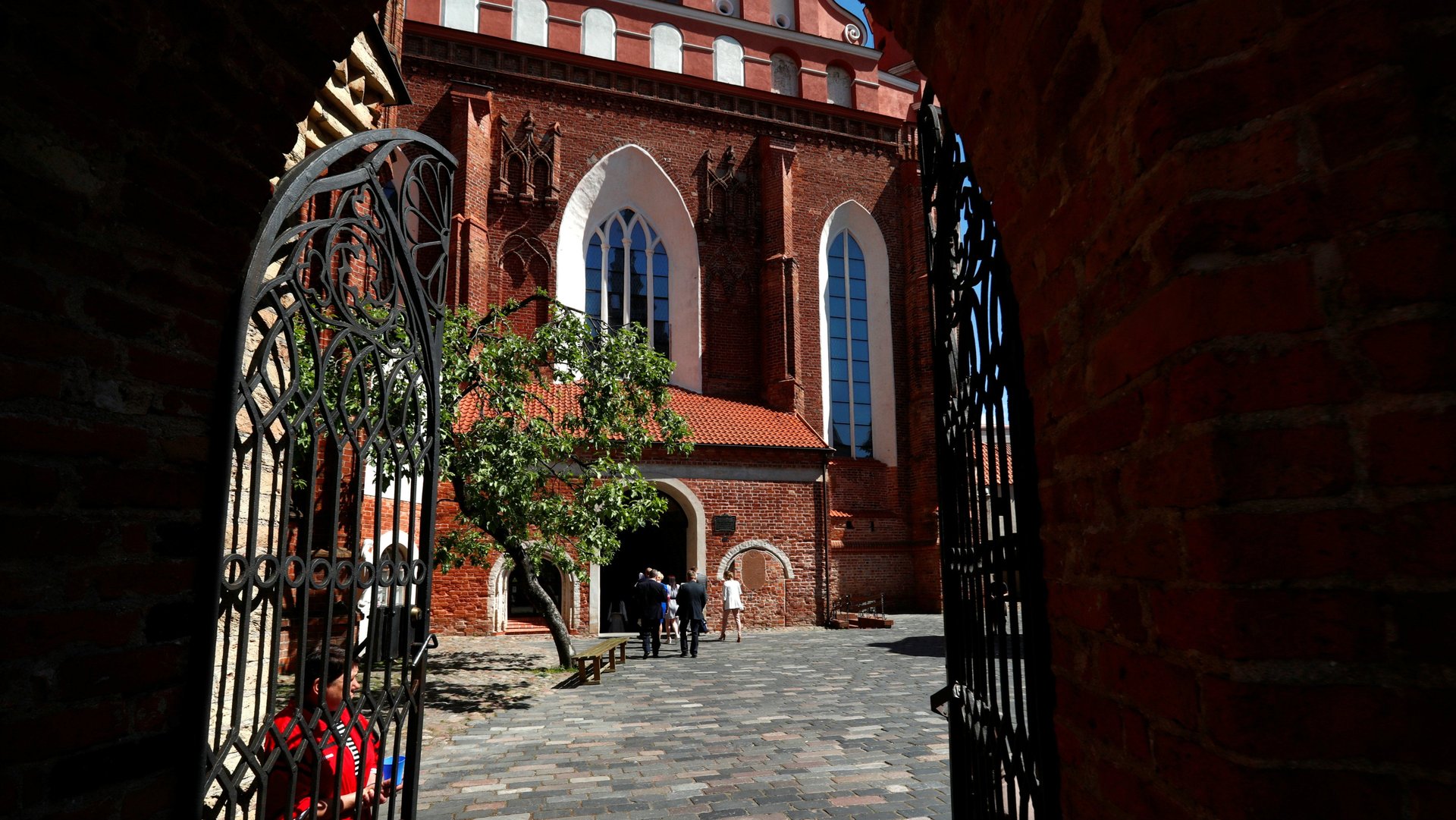John Oliver explains the genius of Lithuania’s strange “G-spot” tourism campaign
Coming up with a tourism slogan that lures travelers, doesn’t sound corny, and is distinctive enough to remember is a hard task for even the most established of travel destinations. But last week, tourism officials in Vilnius, the capital of Lithuania, broke through the noise with a sexually explicit (and somewhat baffling) campaign that immediately went viral.


Coming up with a tourism slogan that lures travelers, doesn’t sound corny, and is distinctive enough to remember is a hard task for even the most established of travel destinations. But last week, tourism officials in Vilnius, the capital of Lithuania, broke through the noise with a sexually explicit (and somewhat baffling) campaign that immediately went viral.
The Go Vilnius campaign proclaims the city the “G-spot of Europe”: ”Nobody knows where it is, but when you find it—it’s amazing.”
The international reaction was, unsurprisingly, one of quasi-delighted sniggering and head scratching—both at the tawdry tone of the campaign and the idea that such a random sexual metaphor could get travelers excited about going somewhere many have never heard of.
Within the mostly Catholic Baltic nation, the reaction has been less positive—particularly ahead of the Pope’s official visit to Lithuania in late September. An archbishop even complained that it could reinforce the image of Vilnius as a sex-tourism city.
But the organizers of the campaign are reveling in the international press, negative as well as positive. “Every cloud has a silver lining,” Inga Romanovskiene, head of the municipal business development and tourism agency, Go Vilnius, told the Baltic Times. “Before the launch of this campaign already, to this day we had 937 publications in foreign media.”
Indeed, in a segment on the US political satire show Last Week Tonight with John Oliver over the weekend, the British comedian pointed out that the very fact his writers had found the campaign bizarre enough to feature on their show is indicative of the campaign’s success: “In a way, it’s already worked because do you think we were gonna spend time talking about Lithuania tonight if they hadn’t done this? Of course not.”
Oliver goes on to rattle off a slew of “adult only tourism slogans” which, while completely absurd, don’t feel that far afield from the Vilnius tagline, which was reportedly formulated by a group of advertising students.
Whether all this attention will result in an increase in visitors to the city is anyone’s guess. But one thing seems like a sure bet: More people can now name the capital of Lithuania than could before the campaign was launched last week.